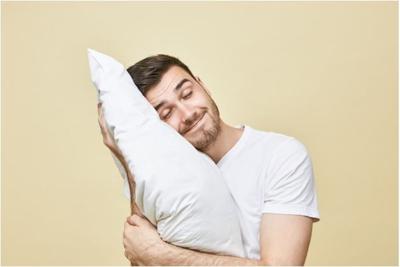Sleep is a fundamental aspect of human health, playing a critical role in physical, mental, and emotional well-being. For individuals in , the importance of quality sleep cannot be overstated. This article explores the intricate relationship between sleep and addiction recovery, highlighting how restorative sleep can aid healing and what steps can be taken to improve sleep quality.
The Role of Sleep in Recovery
Recovery from addiction is a multifaceted journey that encompasses various physical and psychological challenges. One of the most significant yet often overlooked factors in this process is sleep. Quality sleep is essential for brain function, emotional regulation, and overall health, all of which are crucial for someone recovering from substance use disorders.
Physical Restoration
During sleep, the body undergoes various restorative processes. Muscle repair, tissue growth, and the release of growth hormones all occur during deep sleep stages. For individuals recovering from addiction, these processes are vital as they help the body heal from the physical toll of substance use. Improved physical health can lead to better energy levels, which is essential for engaging in recovery activities such as therapy, exercise, and social interactions.Â
Reducing Cravings and Relapse Risk
Research has shown that sleep deprivation can increase cravings for substances, making it harder for individuals to resist temptation. When the body is tired, the brain's reward systems can become dysregulated, leading to heightened cravings and impulsivity. Ensuring adequate sleep can help stabilize these systems, thereby reducing the likelihood of relapse.Â
Common Sleep Disorders in Recovery
Individuals in recovery often experience sleep disturbances, which can hinder the healing process. Understanding these common sleep disorders can help in addressing them effectively.
Nightmares and Night Terrors
Experiencing nightmares or night terrors is not uncommon for individuals in recovery, particularly in the early stages. These disturbances can be linked to trauma, anxiety, or the psychological effects of substance withdrawal. Addressing these issues through therapy and developing healthy sleep habits can help mitigate their impact. for Insomnia (CBT-I) is a particularly effective approach that helps individuals reframe negative thoughts about sleep and develop coping strategies.
Strategies for Improving Sleep Quality
Improving sleep quality is a vital component of addiction recovery. Here are several strategies that can help individuals achieve better sleep.
Establish a Consistent Sleep Schedule
Maintaining a regular sleep schedule can significantly improve sleep quality. Going to bed and waking up at the same time every day helps regulate the body's internal clock, making it easier to fall asleep and wake up refreshed. Consistency is key, even on weekends or days off.
The Role of Nutrition and Exercise
Nutrition and physical activity are integral to overall health and can significantly impact sleep quality. Making mindful choices in these areas can enhance recovery and promote better sleep.
Mindfulness and Relaxation Techniques
Incorporating mindfulness and relaxation techniques into daily routines can significantly enhance sleep quality and support recovery. These practices help reduce stress and promote a sense of calm.
Mindfulness Meditation
Mindfulness meditation involves focusing on the present moment and observing thoughts without judgment. This practice can help reduce anxiety and promote relaxation, making it easier to fall asleep. Regular meditation practice can also improve emotional regulation, which is beneficial for those in recovery.
Deep Breathing Exercises
Deep breathing exercises can activate the bodyòòò½ÊÓƵ™s relaxation response, helping to calm the mind and body before sleep. Techniques such as diaphragmatic breathing or the 4-7-8 method can be particularly effective in reducing stress and promoting a sense of tranquility.
Seeking Professional Help
For individuals struggling with sleep disturbances during recovery, seeking professional help is essential. Sleep disorders can be complex and may require specialized treatment.
Therapeutic Support
Therapy can be a powerful tool in addressing the psychological factors that contribute to sleep disturbances. Cognitive-behavioral therapy for insomnia (CBT-I) is a structured program that helps individuals identify and change thoughts and behaviors that negatively impact sleep. This therapeutic approach can be particularly beneficial for those in recovery.
Medication Management
In some cases, medication may be necessary to address sleep disorders. However, it is crucial to approach this option cautiously, especially for individuals in recovery. Consulting with a healthcare provider can help determine the best course of action, weighing the benefits against potential risks.
Conclusion
Sleep is an essential component of addiction recovery, influencing physical health, mental clarity, and emotional regulation. Understanding the relationship between sleep and recovery can empower individuals to take proactive steps toward improving their sleep quality. By establishing healthy sleep habits, optimizing nutrition and exercise, and incorporating mindfulness techniques, individuals can enhance their recovery journey.








